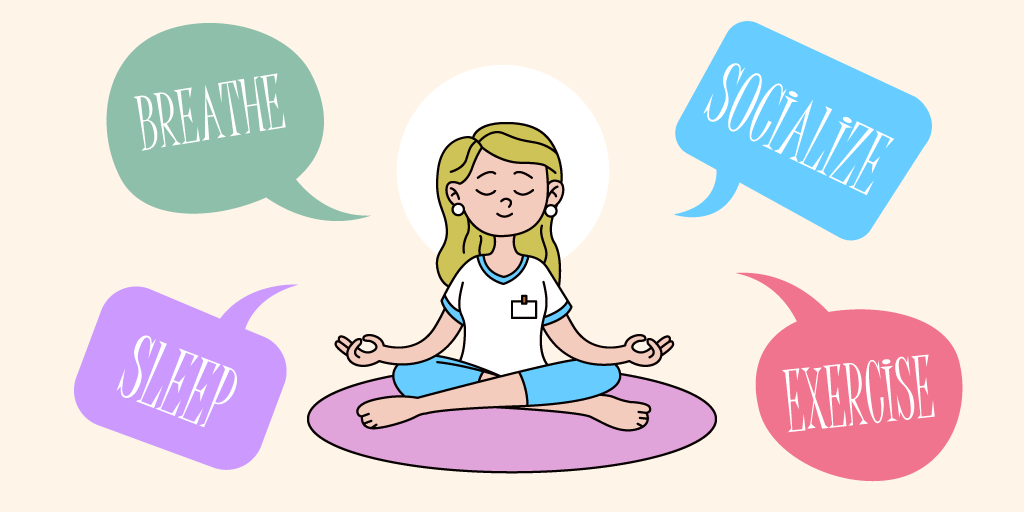Stress Management: Effective Techniques to Reduce and Manage Stress
In todays fast-paced world, stress management has become an essential skill. The constant demands of work, family, finances, and daily responsibilities can take a toll on your physical and mental health. Left unmanaged, chronic stress can lead to a variety of health problems, including anxiety, depression, heart disease, and more.
However, by incorporating practical stress management techniques, you can regain control over your life and well-being. This article will explore proven methods to effectively reduce and manage stress, ensuring you stay balanced even in challenging situations.
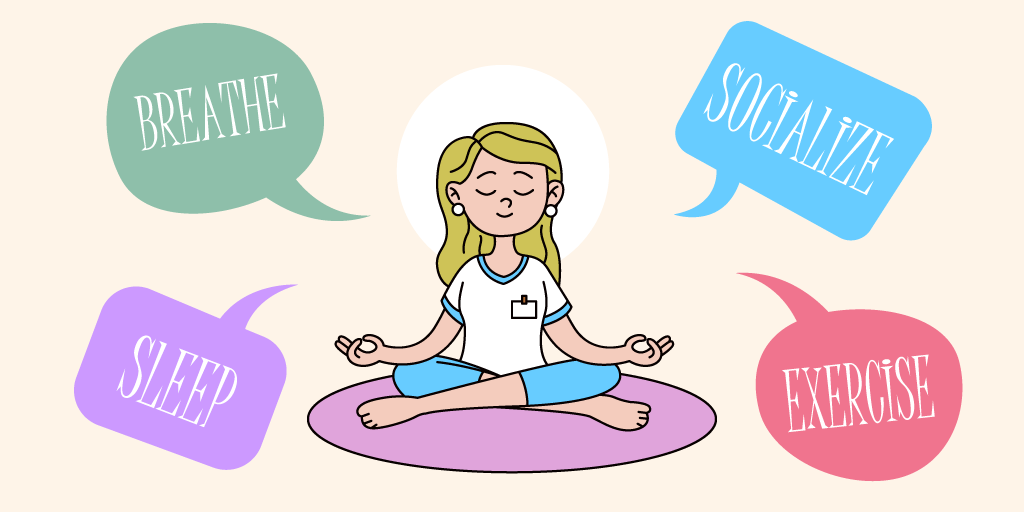
What is Stress Management?
Stress management refers to a set of techniques and practices aimed at controlling a person’s level of stress, particularly chronic stress. It is crucial because unmanaged stress can negatively impact your mental and physical health. Learning how to manage stress is essential not only for maintaining balance but also for improving overall quality of life.
Stress itself isn’t inherently bad; it can even be motivating in certain situations. However, when stress becomes overwhelming or constant, it can lead to serious health issues, from insomnia to cardiovascular disease. Thats where stress management techniques come into play, helping you to handle stress more effectively.
Types of Stress
Not all stress is the same. Understanding the different types of stress can help you better manage it:
- Eustress: This is positive stress that motivates you to meet deadlines, achieve goals, and push through challenges. Think of it as the kind of stress you feel before an exciting event or performance.
-
Distress: Negative stress that can overwhelm your ability to cope. Distress leads to anxiety, physical health issues, and emotional exhaustion.
-
Acute Stress: This is short-term stress that arises in response to immediate threats or challenges. Its your bodys natural fight-or-flight response.
-
Chronic Stress: Long-term stress resulting from ongoing issues like financial troubles, work pressure, or family problems. Chronic stress is particularly harmful and needs to be managed effectively.
Common Causes of Stress
Many factors contribute to stress, and they can be either external or internal. Recognizing the sources of stress in your life is the first step toward managing it.
External Causes of Stress
Some common external stressors include:
- Work pressures: Deadlines, job insecurity, and heavy workloads can lead to significant stress.
- Financial worries: Debt, unexpected expenses, or insufficient income can create ongoing anxiety.
- Family and relationships: Disagreements or lack of support within relationships often contribute to stress.
- Environmental factors: Noise, pollution, or living in unsafe areas can be sources of stress.
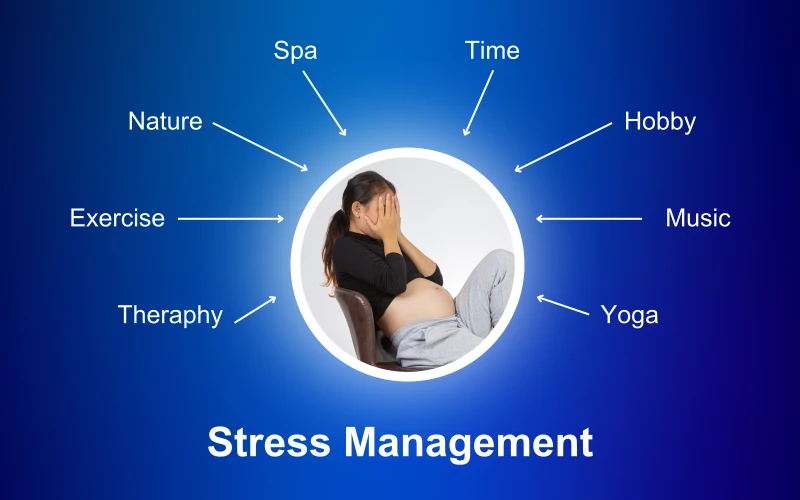
Internal Causes of Stress
Internal stressors are often related to our personal attitudes and beliefs, such as:
- Perfectionism: Setting unattainable standards for yourself can lead to constant stress.
- Negative thinking: Persistent negative thoughts, self-doubt, or catastrophizing can exacerbate stress levels.
- Self-imposed pressure: Pushing yourself too hard to meet personal or professional goals without giving yourself time to rest and recharge.
Signs and Symptoms of Stress
Stress manifests in different ways, and its symptoms can be physical, emotional, and behavioral. Recognizing the signs can help you take action before stress takes over your life.
Physical Symptoms
Physical signs of stress can include:
- Headaches and muscle tension
- Fatigue and difficulty sleeping
- Upset stomach or digestive issues
- Changes in appetite
- High blood pressure or increased heart rate
Emotional Symptoms
Stress can also affect your emotional well-being, causing:
- Anxiety and irritability
- Depression or feeling overwhelmed
- Difficulty concentrating or making decisions
- Mood swings and frequent frustration
Behavioral Symptoms
In terms of behavior, stress can lead to:
- Procrastination or avoiding responsibilities
- Increased use of alcohol, drugs, or other unhealthy coping mechanisms
- Changes in eating habits (overeating or undereating)
- Social withdrawal or isolation
Effective Stress Management Techniques
Managing stress doesnt require major life changes. Instead, simple techniques and lifestyle adjustments can make a significant difference. Below are some effective ways to manage stress in your daily life.
Mindfulness and Meditation
One of the most effective ways to manage stress is through mindfulness and meditation. These practices encourage being present in the moment and calming the mind, helping you break the cycle of stress.
“Mindfulness helps you go home to the present. And every time you go there and recognize a condition of happiness that you have, happiness comes.” Thich Nhat Hanh
- Mindfulness meditation: This involves focusing on your breathing and observing your thoughts without judgment. By practicing mindfulness, you can reduce anxiety and prevent stress from spiraling out of control.
For more on mindfulness, check out Mindful.org.
-
Guided meditation: This form of meditation is led by an instructor or app, providing step-by-step instructions to calm your mind and body. Apps like Headspace and Calm offer excellent guided meditation sessions to help with stress relief.
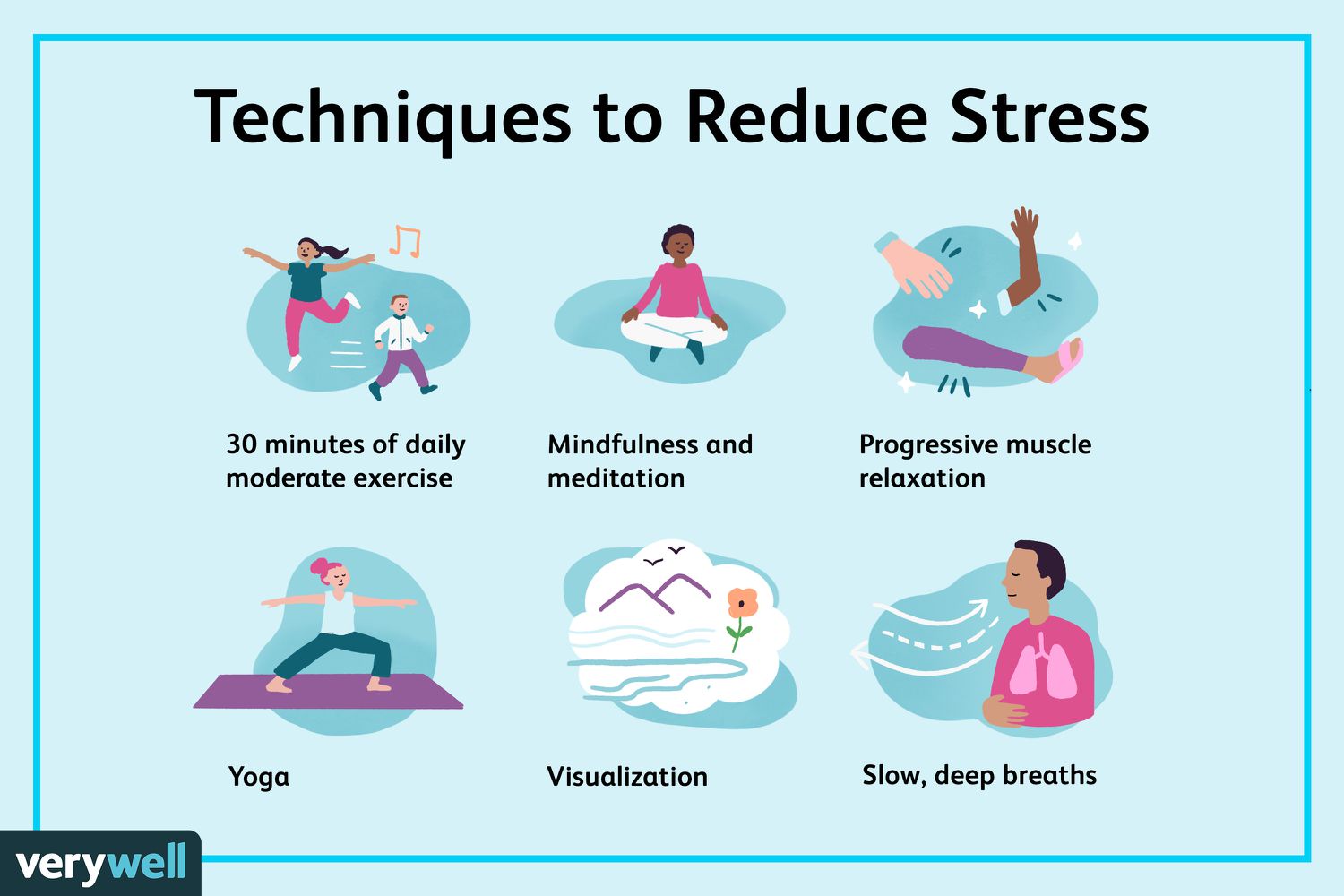
Physical Exercise
Physical activity is a well-known stress reliever. Exercise releases endorphins, which are chemicals in the brain that act as natural painkillers and mood elevators.
- Yoga: Combining physical movement with mindfulness, yoga is an effective way to manage stress. It helps relax both the mind and body through deep breathing, stretching, and meditation techniques.
-
Cardiovascular exercise: Running, swimming, and cycling are great ways to get your heart rate up and burn off stress. Even a brisk walk can help clear your mind and reduce tension.
Regular exercise not only improves your physical health but also boosts mental well-being, making it an essential component of stress management.
Time Management Techniques
Time management is another critical element of stress reduction. When you feel overwhelmed by a busy schedule or impending deadlines, effective time management strategies can help you regain control.
- Prioritization: Focus on whats most important and tackle those tasks first. Make use of to-do lists and time-blocking to organize your day more efficiently.
-
Delegation: Dont be afraid to delegate tasks when necessary. Trying to do everything yourself can lead to burnout.
By managing your time wisely, you can prevent unnecessary stress from building up and feel more in control of your responsibilities.
Continue learning more about healthy lifestyle habits and long-term stress management solutions in the second half of the article, which will cover cognitive-behavioral techniques and the role of professional help.
Healthy Lifestyle Habits
In addition to mindfulness and physical exercise, lifestyle habits play a significant role in managing stress. Small adjustments in your daily routines can help you reduce stress levels and enhance your overall well-being.

Balanced Diet
A balanced diet not only supports physical health but also helps regulate stress. When you nourish your body with essential vitamins and minerals, you give yourself the energy needed to manage daily pressures.
- Omega-3 fatty acids found in foods like salmon, chia seeds, and walnuts help combat inflammation and improve brain function.
- Complex carbohydrates like whole grains can boost serotonin levels, which promote a sense of calm.
- Avoiding excessive caffeine and sugar can also stabilize your mood and energy levels throughout the day.
For more tips on a stress-busting diet, check out this detailed guide.
Sleep Hygiene
Sleep hygiene refers to practices that ensure a restful nights sleep, which is crucial for managing stress. Lack of sleep can elevate cortisol (the stress hormone), making you more vulnerable to stress.
Some ways to improve your sleep hygiene include:
- Establishing a regular sleep schedule by going to bed and waking up at the same time each day.
- Limiting screen time before bed as the blue light from devices can disrupt your sleep cycle.
- Creating a relaxing bedtime routine, such as reading, meditating, or taking a warm bath.
By prioritizing sleep, you equip your body with the resources it needs to handle stress more effectively.
Cognitive Behavioral Techniques (CBT)
Cognitive Behavioral Therapy (CBT) is a proven psychological approach that helps people manage stress by changing negative thought patterns. By challenging and reframing these thoughts, you can reduce the emotional impact of stressful situations.
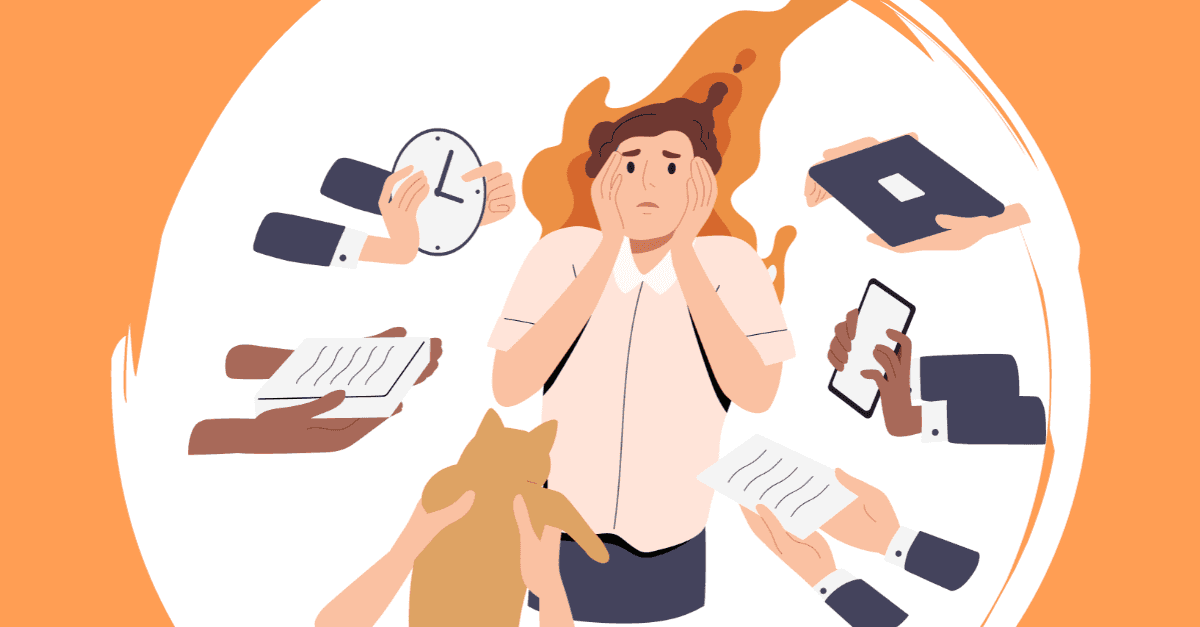
Thought Journaling
One effective CBT technique is thought journaling, where you write down stressful thoughts and then analyze them. This process helps you identify patterns of negative thinking that may be contributing to stress. You can then work to challenge these thoughts by asking yourself:
- Is this thought based on facts or assumptions?
- How would I view this situation if I were more objective?
- What are some alternative ways of thinking about this?
Thought journaling allows you to gain a clearer perspective, making stress feel more manageable.
Reframing Negative Thoughts
Another essential CBT technique is cognitive reframing, which involves changing the way you interpret negative situations. For example, instead of thinking, I cant handle this, you might reframe it as, This is challenging, but Ive overcome difficulties before, and I can do it again.
Reframing helps reduce the emotional burden of stress, empowering you to face challenges with a more positive mindset.
The Role of Professional Help
While many stress management techniques can be practiced independently, there are times when professional support is necessary. Seeking help from a therapist, counselor, or health professional can provide additional strategies and guidance tailored to your specific situation.
Therapy and Counseling
Talk therapy (such as CBT) offers a safe space to explore your stress triggers and develop coping mechanisms. Therapists can teach you mindfulness-based stress reduction (MBSR) and help you implement changes in thought patterns.
Counseling is especially important if your stress levels are leading to anxiety, depression, or other mental health concerns.
Stress Management Programs
Many workplaces and wellness centers offer stress management programs that include workshops, relaxation training, and support groups. These programs help individuals learn to manage stress more effectively in a structured environment.
Workplaces may also provide Employee Assistance Programs (EAPs), which offer resources and counseling to help employees manage work-related stress.
How to Maintain Long-Term Stress Relief
Managing stress is an ongoing process that requires consistency and self-awareness. To maintain stress relief in the long term, its important to develop sustainable habits and regularly check in with yourself.
Regular Self-Check-ins
A helpful way to manage stress is by practicing regular self-check-ins. Take time to reflect on your stress levels and how youre feeling emotionally and physically. If you notice that your stress is increasing, implement one of the stress management techniques discussed earlier, such as mindfulness or exercise.
These check-ins can be as simple as journaling for 10 minutes each week or scheduling a quiet moment each day to assess your well-being.
Building a Stress-Resilient Lifestyle
Developing a stress-resilient lifestyle means creating an environment that supports your mental and physical health over the long term. Here are some ways to do this:
- Set boundaries: Learning to say no when your plate is full helps prevent unnecessary stress.
- Practice gratitude: Focusing on positive aspects of your life can shift your mindset away from stressors.
- Create a supportive environment: Surround yourself with people who encourage balance and self-care.
By cultivating these habits, you build resilience, making it easier to cope with future stress.

FAQs
Q: How quickly can stress management techniques work?
A: The effectiveness of stress management techniques depends on the method and how consistently you practice them. Techniques like deep breathing can have an immediate calming effect, while long-term practices like mindfulness and exercise may take a few weeks to show full benefits.
Q: Can stress ever be eliminated completely?
A: Stress is a natural part of life and cannot be entirely eliminated. However, by practicing effective stress management techniques, you can significantly reduce its impact on your life and handle stressors more effectively.
Q: When should I seek professional help for stress management?
A: If stress is causing you severe anxiety, depression, or other mental health issues, or if you feel overwhelmed despite trying different techniques, it may be time to seek help from a therapist or counselor.
Conclusion
Stress management is essential for maintaining both mental and physical health. By incorporating techniques such as mindfulness, exercise, time management, and cognitive reframing, you can reduce the harmful effects of stress and lead a more balanced, fulfilling life.
Start small by adopting one or two of these strategies, and over time, you’ll develop a personalized stress management toolkit. Remember, consistency is keymanaging stress is an ongoing process that evolves with your needs and circumstances.
For more in-depth guidance on stress management, consider seeking support from a health professional or joining a stress management program tailored to your needs.

